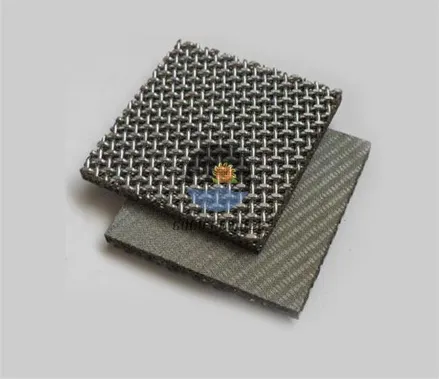Kvě . 21, 2025 17:54 Zpět na seznam
Precision and Protection: How the Right Air Filter Powers Industry
Air quality isn’t just a concern for homes—it’s a critical factor in some of the world’s most demanding environments. In sectors like chemical processing and petroleum refining, selecting the right air filter can mean the difference between operational success and system failure. Whether it's a compact 20x20x1 air filter for targeted applications or a robust industrial air filter built for high-volume performance, reliable filtration keeps machinery running and people safe.
Air Filter Applications in the Chemical Industry
The chemical industry depends heavily on clean air. Contaminants, particulates, and chemical vapors can corrode equipment, compromise product purity, and pose serious health risks to workers. This is where a high-performance air filter becomes an essential tool, not an optional add-on.
In production lines where powders, volatile compounds, or high-pressure reactions are involved, industrial air filter systems maintain critical environmental control. They remove airborne dust, filter out harmful fumes, and support cleanroom conditions where even trace contamination can destroy an entire batch of product.
Many air filter manufacturers have designed specialized units for chemical plants, incorporating multi-layer media with high particulate arresting rates and resistance to corrosive gases. The result is a safer workplace, improved product consistency, and extended equipment life. Whether installed in exhaust systems, processing chambers, or centralized HVAC setups, air filter units are silent protectors of complex chemical operations.
Petroleum Industry Demands Specialized Air Filter Systems
In the petroleum industry, environments are dusty, equipment is delicate, and uptime is non-negotiable. Here, a rugged industrial air filter must be more than strong—it must be engineered for explosive atmospheres and fluctuating pressure systems.
Petroleum refineries utilize massive compressors, turbines, and pumping stations that rely on uncontaminated air for peak performance. A single poorly filtered intake can result in carbon fouling, erosion, or catastrophic shutdowns. This is why leading air filter manufacturers produce petroleum-grade filtration systems specifically designed to handle hydrocarbons, oil mist, and dense particulate loads.
From offshore platforms exposed to salt-laden air to inland facilities battling sandstorms, a corrosion-resistant air filter provides dependable filtration in extreme environments. With anti-static construction, metal mesh pre-filters, and layered HEPA or ULPA filters, they offer tiered defense—protecting multi-million-dollar infrastructure from unfiltered damage.
What Makes Industrial Air Filter Systems Different from Household Filters
The air in your home and the air in a refinery are worlds apart—so naturally, so are the filters. A standard 20x20x1 air filter for residential use is typically rated for dust, pollen, and pet dander. But in an industrial setting, filtration must tackle chemical pollutants, oil vapors, welding smoke, and much more.
A true industrial air filter is constructed from durable materials such as galvanized steel, pleated synthetic fibers, or fiberglass. These filters often contain activated carbon layers or electrostatic charge capabilities, increasing their ability to trap even microscopic particles and gases.
Moreover, air filter manufacturers test industrial models against rigorous international standards like ISO 16890 or ASHRAE 52.2, which assess performance under real-world industrial conditions. Flow rate, pressure drop, service life, and particle retention are optimized for peak demand—not just occasional usage.
So while a 20x20x1 air filter may serve a household air system well, it simply can’t handle the temperature fluctuations, airborne chemical threats, and operational demands of a refinery or manufacturing plant.
Choosing the Right Air Filter for Your Industry
The ideal air filter isn’t a one-size-fits-all product—it’s one that’s custom-tailored to the specific demands of your industry and environment. For facilities that operate in high-humidity or high-dust regions, air filter manufacturers can provide moisture-resistant media or dual-stage filtration options that prevent clogging and corrosion.
In environments with strict cleanliness codes—like food processing or pharmaceuticals—industrial air filter systems can be fitted with antimicrobial coatings or HEPA/ULPA elements that meet Class 1 cleanroom standards. Meanwhile, fast-replacement frames and extended filter lifespans ensure maintenance downtime is kept to a minimum.
A trusted provider will offer technical consultation, airflow analysis, and testing to ensure that whether you’re installing a standard 20x20x1 air filter or retrofitting an entire plant system, the result will be efficient, long-lasting performance.
Air Filter FAQs
What is the main difference between an industrial air filter and a residential air filter?
An industrial air filter is designed for high-volume airflow and the capture of hazardous or microscopic particles often found in industrial environments, while residential filters like a 20x20x1 air filter are suitable for dust and allergens in home air systems.
Are air filter manufacturers able to customize filters for extreme environments?
Yes, many air filter manufacturers offer custom solutions tailored to harsh environments, including high-temperature, chemical-laden, or explosive atmospheres. These filters often include special coatings and multi-stage filtration.
How is the air filter used in the chemical industry different from that in the petroleum industry?
In the chemical industry, air filter units focus on fume control and particulate filtration to ensure product purity and safety. In the petroleum sector, they must also resist corrosive gases and handle fluctuating pressures under rugged conditions.
Can a 20x20x1 air filter be used in industrial applications?
Not typically. While a 20x20x1 air filter is ideal for residential HVAC systems, industrial operations require more durable, larger-capacity filters that can handle a wider range of airborne threats.
How often should an industrial air filter be replaced?
Replacement frequency depends on the environment and usage. Most industrial air filter systems include monitoring gauges and pressure sensors that indicate when a replacement is necessary, typically ranging from a few months to a year.

podíl
-
What Factors Influence Gabion Mesh Price and Sizing?
ZprávyJun.23,2025
-
What Factors Impact the Selection and Cost of Gabion Products?
ZprávyJun.23,2025
-
What Are the Key Uses and Considerations for Gabion Products?
ZprávyJun.23,2025
-
What Are the Key Applications and Benefits of Welded Mesh Gabion Baskets and Related Solutions?
ZprávyJun.23,2025
-
What Are the Key Applications and Benefits of Gabion Solutions?
ZprávyJun.23,2025
-
What Are the Key Applications and Advantages of Welded Wire Gabion Baskets and Related Solutions?
ZprávyJun.23,2025

